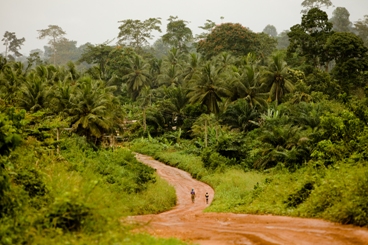Case-study /
Ghana: National Economic, Environment and Development Study (NEEDS) for Climate Change Project


Rainforest in Ghana Image: The Frog Blog
National Development Plans and Priorities in the context of Climate Change
Two major principles underpin Ghana’s long-term goals with regard to sustainable development: to establish and maintain a robust built and natural environment that sustains productive economic activities and pleasant living conditions for both present and future generations; and to establish an environmentally conscious society that exercises self-discipline at all times with regard to individual and common behaviour towards the environment. Consequently, environmental objectives are embedded in Ghana’s national targets, including:
- To halve the current levels of chemical and particulate air pollution by 2020;
- To stop and reverse deforestation and desertification by 2020;
- To achieve sustainable exploitation and protection of forest resources;
- To substantially increase the use of renewable energy sources;
- To substantially decrease the use of chemical fertilizers;
- To improve water and air quality
Lessons Learned
Ghana’s main challenges in implementing its proposed national communication strategies and achieving its national targets include:
- To integrate environmental considerations into decision-making on development, at the national and subnational levels;
- To increase access to information on, and improve understanding of, environmental issues;
- To establish an appropriate institutional framework and mechanisms to facilitate integration of environmental considerations into development plans;
- To encourage the adoption of more effective management practices and technology;
- To ensure compliance with environmental standards and regulations;
- To apply the ‘polluter pays’ principle in order to prevent reckless environmental destruction.
